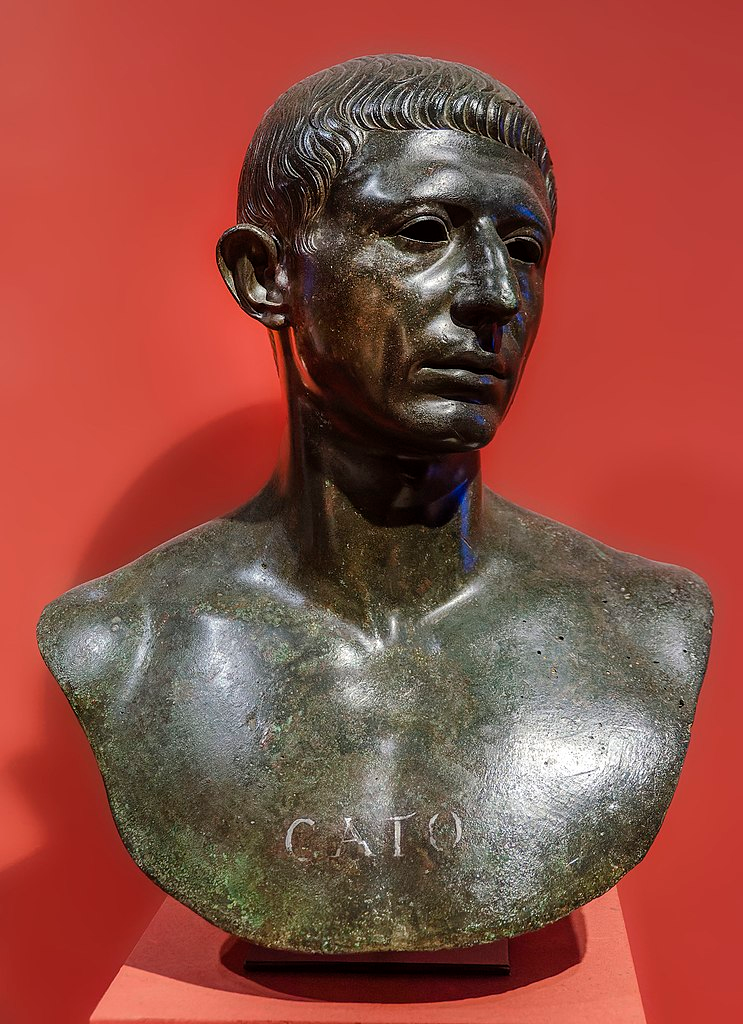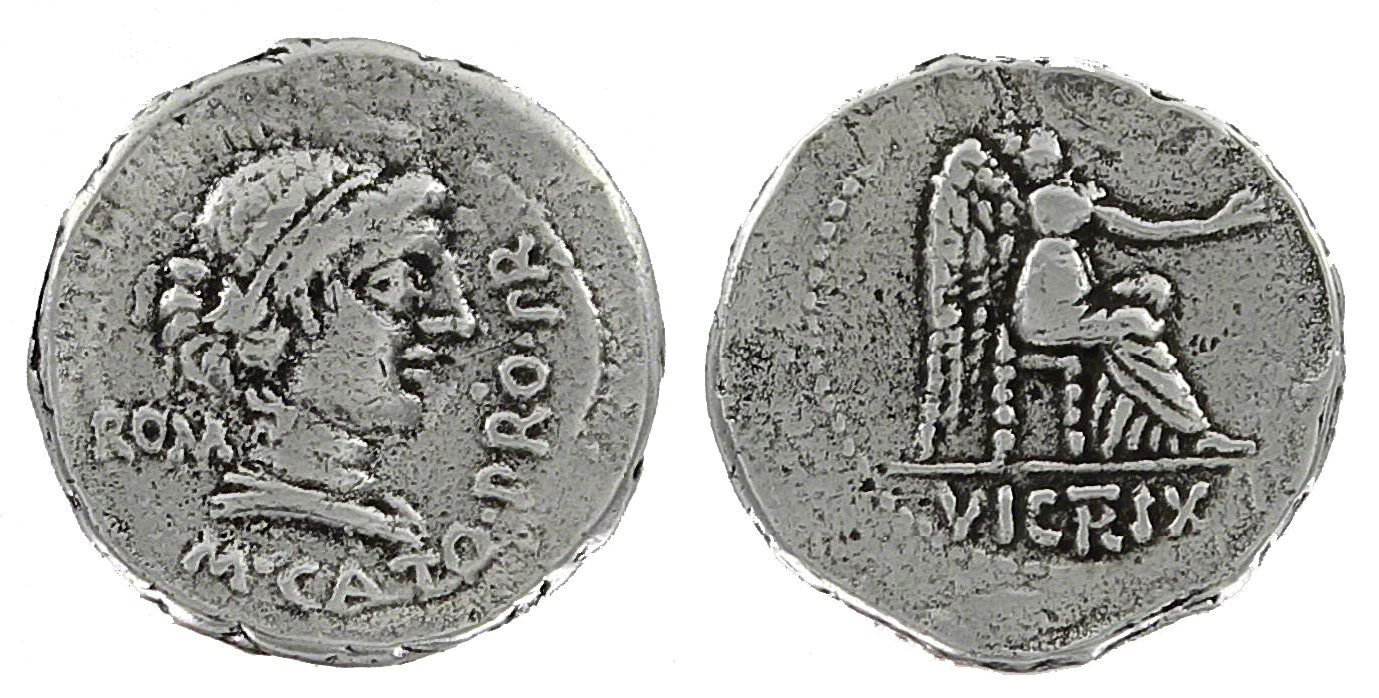Cato the Younger
Introduction
Cato the Younger, full name Marcus Porcius Cato, also known as Cato of Utica, was a prominent Roman Senator and philosopher in the late Roman Republic. Born in 95 BC, he is best remembered for his unwavering opposition to Julius Caesar and his steadfast adherence to the principles of Stoic philosophy.

Cato The Younger https://en.wikipedia.org/wiki/Cato_the_Younger
Early Life and Family
Parentage and Childhood
Cato was born into an illustrious and politically influential family. His father, Marcus Porcius Cato, was a distinguished Roman statesman, while his mother, Livia Drusa, also came from a prominent family.
Cato, the Younger’s upbringing was heavily influenced by his family’s commitment to traditional Roman values. His father died when he was young, and his mother remarried Marcus Livius Drusus, a Roman statesman who also played a crucial role in shaping Cato’s character.
Influence of Stoic Philosophy
Cato was introduced to Stoic philosophy at a young age, and it profoundly impacted his personal beliefs and political convictions. He was particularly influenced by the teachings of the Stoic philosopher Antipater of Tarsus, which emphasized virtue, integrity, and self-discipline. These values shaped Cato’s personal and political life, making him a staunch advocate for preserving the Roman Republic and its principles.
Military Service
Service in the Roman Army
Cato’s military career began early in his life, as he accompanied his half-brother, Gaius Licinius Drusus, on a military campaign in Asia Minor. He also served under Pompey during the Third Mithridatic War, displaying bravery and competence as a military leader.
Campaigns in the East
Cato’s military service continued during the Roman civil war, as he led a detachment of troops in support of Pompey’s forces in Greece. After Pompey’s defeat, Cato retreated with the remnants of the Republican army to North Africa, where he continued to resist Caesar’s forces. Ultimately, he found himself besieged in the city of Utica; Cato chose to take his own life rather than surrender to Caesar.
Political Career
Cato’s Entry into Politics
Cato began his political career at a young age, serving in various administrative and military positions. He was elected as a quaestor, a junior magistrate responsible for financial administration, in 65 BCE, this marked the beginning of his active involvement in Roman politics, and he soon gained a reputation as a principled and incorruptible statesman.
Cato’s senatorial career began in 63 BC when he was elected Tribune of the Plebs.
Throughout his time in the Senate, Cato was known for his fierce opposition to corruption and adherence to Stoic philosophy, guiding his personal and political life. He consistently worked to preserve the traditional values of the Republic, which he believed were under threat from individuals such as Julius Caesar and Pompey.
The Catilinarian Conspiracy
In 63 BCE, Cato played a pivotal role in exposing and thwarting the Catilinarian conspiracy, a plot led by the Roman senator Lucius Sergius Catilina to overthrow the Roman Republic. Cato’s strong stance against corruption and unwavering commitment to the Republic’s principles earned him widespread admiration and respect.
Opposition to Julius Caesar
Cato’s most famous political rivalry was with Julius Caesar. As a staunch Roman republic defender, Cato saw Caesar’s growing power and ambition directly threatening Rome’s traditional values and institutions. As a result, he consistently opposed Caesar’s political moves, including his alliance with Pompey the Great and Marcus Licinius Crassus (the First Triumvirate), and Caesar’s bid for the consulship.
Cato’s opposition to Caesar peaked during the civil war between Caesar and Pompey from 49 to 45 BCE. Cato sided with Pompey, a fellow defender of the Republic, and continued to resist Caesar even after Pompey’s defeat at the Battle of Pharsalus in 48 BCE.
Personal Life
Cato’s adherence to Stoic principles was not limited to his political life. He practiced self-discipline and austerity, shunning luxury and embracing a simple lifestyle. Cato was known for wearing plain clothing and eating simple meals, and he often walked barefoot or slept on a hard surface to toughen his body and spirit.
Legacy
Influence on Later Generations
Cato’s unwavering commitment to the principles of the Roman Republic and his stoic lifestyle made him a symbol of Roman virtue and integrity. But unfortunately, his opposition to Julius Caesar and his tragic end in Utica were romanticized by later generations, and he was celebrated as a martyr for the cause of liberty.
Cato, as a Symbol of Roman Virtue
Cato’s life and actions served as an inspiration for future generations of Romans and other civilizations. His dedication to the principles of Stoicism, his moral integrity, and his steadfast defense of the Roman Republic left an indelible mark on history, making Cato a lasting symbol of Roman virtue and the embodiment of an ideal citizen.
Conclusion
Cato the Younger was a formidable figure in the late Roman Republic, known for his unwavering adherence to Stoic principles and his staunch defense of traditional Roman values. His political career, military service, and personal life were all guided by his commitment to these ideals. Cato’s lasting legacy as a symbol of Roman virtue and integrity has endured for centuries, inspiring future generations to uphold the values he passionately defended.
Cato Roman Republic Denarius Replica Coin
47-46 BC
Obverse: Female head right, ROM behind, M. CATO PRO PR before
Reverse: Victory seated right holding patera; VICTRIX in exergue
The reverse commemorates the shrine to Victoria Virgo near the temple
of Victory that Marcus Porcius Cato dedicated.


